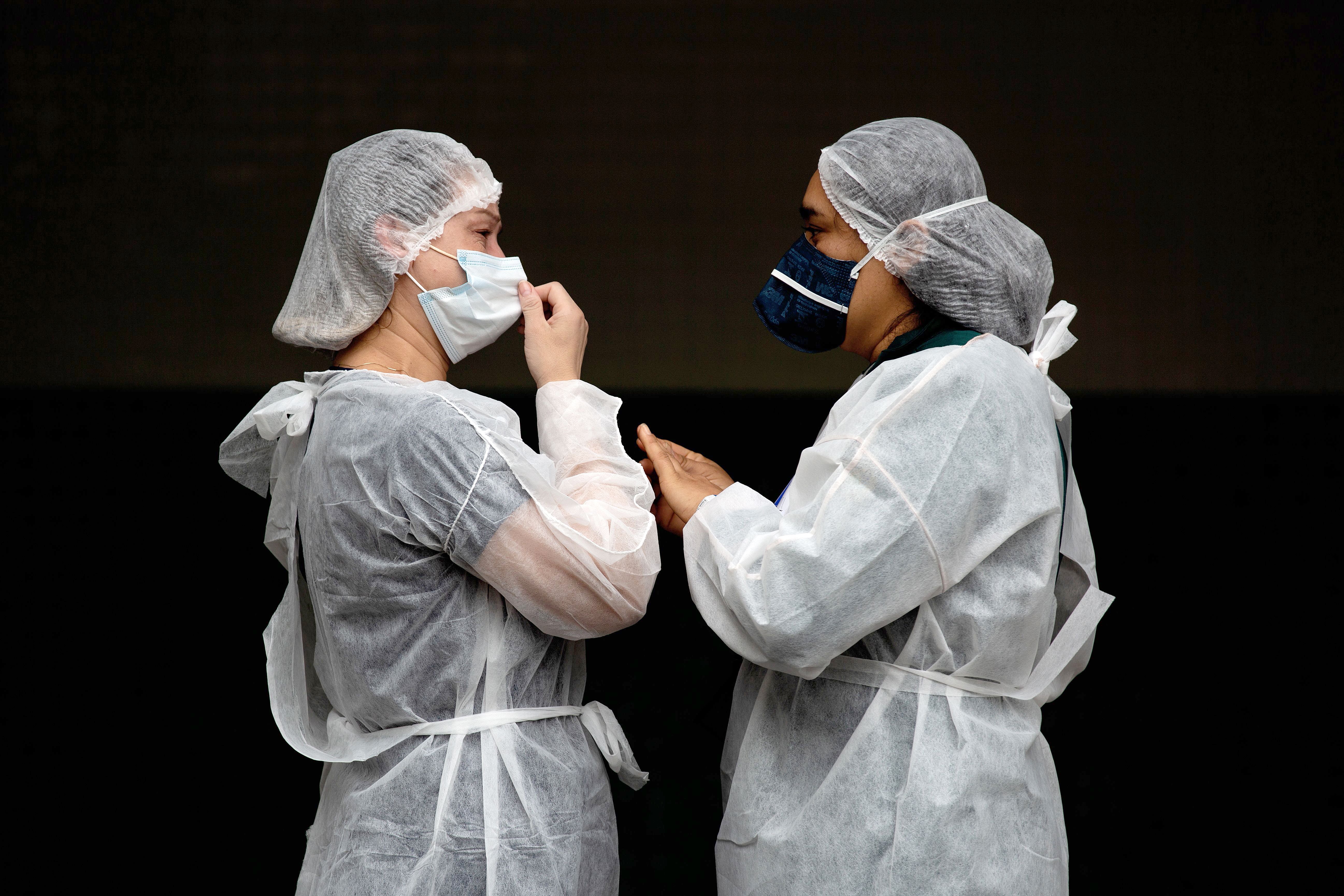
In December 2020 a 2nd wave did hit. Numerous died of asphyxiation on makeshift beds in health center corridors or their house, physicians state.
More severe than the first one, the brand-new wave took Manaus by surprise.
Questions developed as to whether herd immunity had actually ever been accomplished, the number of individuals contaminated had been overcounted or immunity to the virus had actually subsided. Another disturbing possibility was that anomalies to the virus in the Amazonian city that had actually generated what is called the Manaus variation, or more officially P. 1, might have triggered reinfections in people who had earlier bouts or could have sped the rate of transmission amongst the still uninfected.
” It’s rather difficult to come up with any situation that can be made to fit Manaus which is not extremely worrying,” states William Hanage, an epidemiologist at the Harvard T. H. Chan School of Public Heath.
Current research studies have substantiated the suspicions that P. 1 drove Manaus’s second wave
Hanage hopes the alarming scenes in the Amazon– healthcare facility systems collapsing, severe diggers carving out trenches for mass graves shared by multiple bodies, and households frantically queuing for oxygen supplies– will send a clear message: “Herd resistance through infection, rather of a vaccine, just features a huge amount of illness and death,” Hanage states.
“[People in Manaus] thought, ‘We travelled through this big wave, so now it’s fine,'” says Paola Resende, a research researcher at the Laboratory of Breathing Viruses and Measles at Fiocruz. “Naturally, individuals relaxed and started to live their life as normal. And of course, it happened once again.”
Resistance to brand-new measures persisted for months. Social distancing and mask using lagged. On December 26, 2020, when the state of Amazonas ordered services closed to slow rising infection numbers, demonstrations by businesses and workers emerged, and the choice was rapidly reversed.
The Manaus experience holds a cautionary message for the rest of the world, including the U.S., about preserving basic public health strictures even as vaccination campaigns development. And it underlines why just a worldwide technique to immunizations will work.
” Manaus got hit really hard since they dropped all of their mitigations, and they didn’t have an appropriate state of herd resistance,” says Warner Greene, a professor of medicine at the University of California, San Francisco, and founding director of Gladstone Institute of Virology and Immunology. “This false complacency, it’s sort of like today [in the U.S.],” he says. “I believe we’re gon na get struck really hard.”
Latin American nations– where vaccination numbers are behind the international North and infection rates are high– are fertile ground for breeding brand-new variations. The more the virus spreads, the more it has the ability to discover susceptible groups in which anomalies can occur.
The P. 1 mutation is believed to have emerged in Manaus in early November 2020, but by January it made up three quarters of all variants discovered in the city and had actually spread to Japan.
Like other variants initially spotted in the U.K. and South Africa, P. 1’s 17 mutations took place unusually rapidly, and a number of them remain in the spike protein, which is utilized to penetrate the cells of an infected individual.
Research has not concluded that P. 1 alone triggered the crisis in Manaus in spite of formerly high infection rates: overestimates of herd resistance or a natural decrease in antibodies may be at fault.
More worrying is proof that the Manaus version is much better able to evade antibodies.
Immunity got through vaccination seems more robust than immunity attained from infection. Vaccines from leading producers have typically shown less efficacy versus P. 1 than they have against older variants, Resende states that they still supply defense and that the issue should not yet ring alarm bells. Johnson & Johnson’s jab proved 85 percent efficient against severe illness in trials in Brazil— no less than it carried out in the U.S.
Following P. 1’s transmission across Brazil, infections are skyrocketing nationwide. A lot of health centers are running at capacity, and 3,650 daily deaths were reported on March 26, the highest number to date. Two days previously, the country’s total death count reached 300,000 P. 1 may not just be driving higher infection rates in Brazil’s North Region, where P. 1 is most common. There is a boost in death in young people, suggesting it might cause more serious illness, says Margareth Portela, a senior researcher at Fiocruz.
Specialists say that the scenario is fretting– not simply for individuals of Brazil but for the rest of the world as well due to the fact that of the virus’s track record of getting mutations in locations where it abounds.
The lingering concern is whether P. 1 is a portent of what could take place if the pandemic continues unabated. It is not the only Brazilian variant. There is currently a P. 2. And the infection is continuing to change itself in Brazil, deleting sites on the spike protein that antibodies bind to, according to initial research study that has actually not yet been peer-reviewed.
Producers are already dealing with how to modify vaccines to account for new versions such as P. 1, states Dan Barouch, an immunologist at Harvard University. But for now getting the existing ones presented as rapidly as possible is essential.
The U.S. is presently challenging the prospects of a vaccine surplus– and will have to choose what to do with the additional dosages.
Read more about the coronavirus outbreak from Scientific American here And read protection from our worldwide network of magazines here
No comments:
Post a Comment